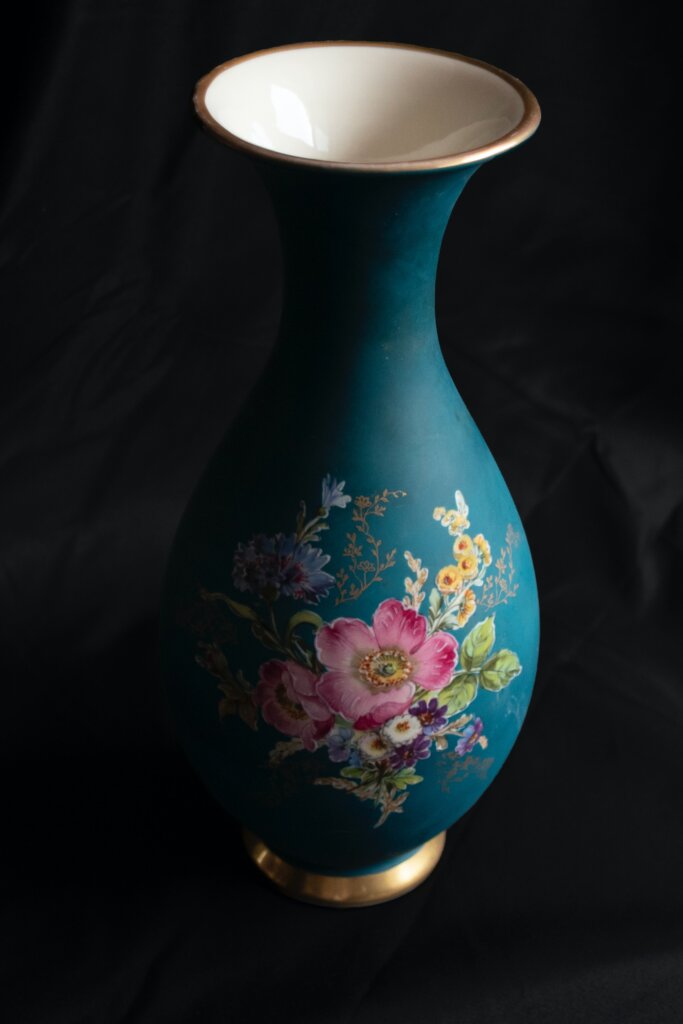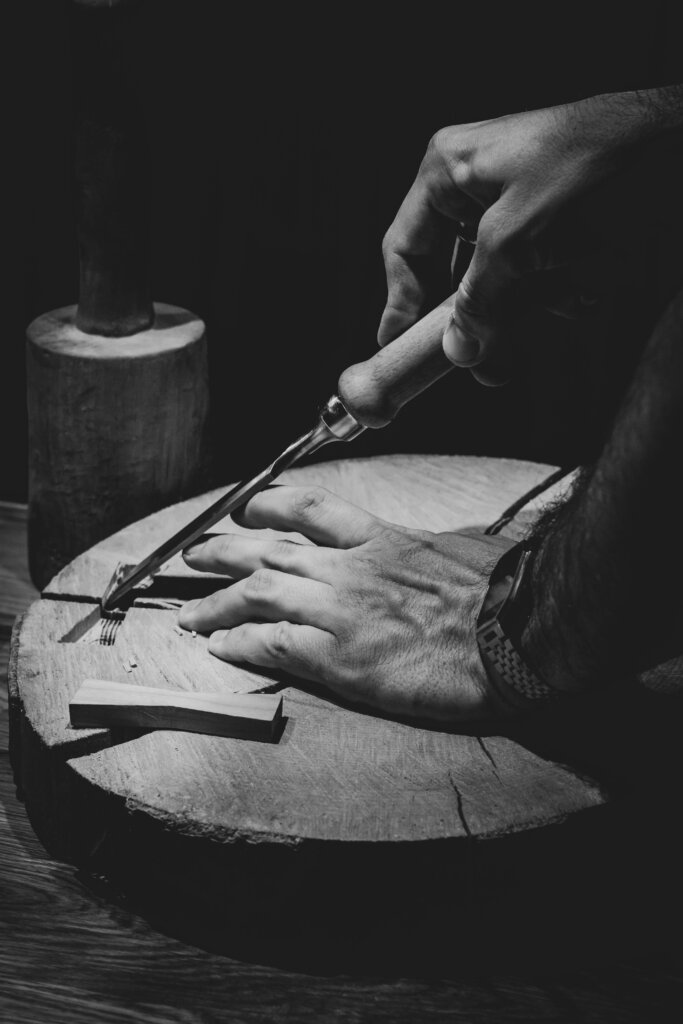
How many times a week do you hear or say the word convenience?
Pretty often, I’m guessing. We live in a world that glorifies convenience. And at first blush, it doesn’t sound like a bad thing.
Drive-through coffee shops…clothing stores full of ready-made outfits…money that we send and receive from our phones with just a few swipes…self-checkouts at food markets…online ordering of just about anything.

“So what?” you may be wondering. “Are you saying those convenient things are bad?”
Well, convenience isn’t an evil by itself, and we can certainly imagine instances in which something being “more convenient” has genuinely contributed to the private and/or public good. For example, having our cell phones conveniently located in our cars means that we can call an ambulance when we see a car wreck instead of driving to the nearest pay phone.
But as a daily reality, convenience is—more often than we realize—at the service of modern cultural traits that are concerning:
- The fast pace of life that results in fatigue and lack of time at home
- The need for instant gratification, and the lack of appreciation for the value of waiting (yes, waiting has real value!)
- The need to be continuously entertained and comforted, along with the fear of discomfort
- The breakdown of both religious and family vocations, which means that we have an unnatural over-abundance of single working people. Within religious communities and families, the division of labor protects the members from the exhaustion of handling all responsibilities alone. Without this, convenience becomes critical to just getting stuff done.
These are all symptoms of a wounded culture.
Convenience is actually a coping mechanism. We can’t do it all—we’re overwhelmed—and we turn to convenient things in order to survive.
But surviving isn’t thriving, and mysteriously, it seems like convenience does nothing to give us more time. It just feeds the beast.
The Victims of Convenience

So what do we sacrifice for convenience?
Well, convenience nearly always comes at the cost of three valuable things: the quality of the item, the hands-on experience, and the skill of the laborer.
We’re going to consider just the first two of these today. The third—a really fascinating topic—will require a sequel article in the near future.
Victim #1: Quality

Bear with me while I state the obvious.
Anything hand-sewn, hand-cast, hand-cooked, hand-poured, or hand-carved will always be of higher quality than anything mass-produced and/or made by a machine, assuming the hand-crafter is good at his job. This, I’m sure, is not news to you.
So, why do we regularly reject quality on behalf of convenience?
If you’re anything like me, very often you reject it due to cost. This is a fair concern—especially with the state of the economy—so I don’t want to make light of it.
But do we always reject it for this reason? Do we not just as often sacrifice quality for convenience? Indeed, do we regularly pay a premium for a product that is poor quality—but convenient?
Let’s take a look at a few examples:
Ready-made food. Precooked meals are never as good as cooking them fresh yourself, and cost twice as much. This is one of those instances where we trade both quality and money for convenience.
Tea bags. My mother grew up in a working-class northern English town and yet, as she puts it, “There was never a tea bag in the house.” My grandfather might have been a poor electrician, but his tea was always loose-leaf.
Why? It’s better quality. The tea is fresher, its flavor richer and more potent. It tastes better and it’s better for you.

Loose-leaf tea IS making a comeback these days, but many people (myself included) generally opt for tea bags instead.
Why? You guessed it—convenience!
Speaking of caffeine, let’s all admit that we spend way too much money on to-go coffee. Coffee shops have long been a staple of both Western and Eastern culture, but the idea of getting coffee in a paper cup to drink on the way to work is the invention of a society that’s always in a rush.
Wrinkle-free clothing. Who has time for ironing, right? The well-dressed human, that’s who. A starched, freshly-ironed white cotton shirt is a timeless piece, while a wrinkle-free polyester shirt is cheap, sometimes ugly, and doesn’t always wash well. (Polyester is also a synthetic material that isn’t biodegradable and which—if it caught fire on someone wearing it—would melt into someone’s skin and cause “irreversible damage.”) So why do we buy polyester garments? Because they’re convenient.
But when did we get to the point where a ten-minute iron job was just too much?

Weren’t our time-saving devices supposed to give us more time?
Why do we seem to be more rushed than ever?
Victim #2: The Hands-On Experience

The second and perhaps more tragic victim of the tyranny of convenience is the experience of doing something by hand.
I don’t mean “experience” in the modern abuse of the word, which usually means a trip, activity, or pastime that has some superficial emotional effect but less real value.
I mean, rather, the action of doing something by hand. This action—through the various things it requires of us—has a positive effect not just on the emotions but on the soul, mind, and body.
Lest you think this is mere romanticism, let’s take note of a few things that happen when we do something by hand, be it ironing a shirt, making a pot of loose-leaf tea, or chopping vegetables.

I’d encourage you to think about these principles, then go do a thing by hand and see how your experience matches up (or not—let us know how it goes in the comment box).
- We hone our time management skills, as we must block more time for our activities.
- We slow down. A step-by-step procedure that we must do with our own fingers requires us to be a bit more methodical than the instant version of whatever we’re doing.
- We mentally focus on our task, rather than rushing through it thoughtlessly while our brain moves on to our next anxiety.
- Our senses are more fully engaged. Through them, we start to appreciate the beauty of things, be it the smell of freshly-ground coffee, the strange power of a little living creature like yeast that makes bread rise like magic before our eyes, or the pleasant warmth of newly-ironed cotton. We’ll learn more about the spiritual importance of this later.

Suddenly, “doing” has value and not simply the number of things we “get done.” That’s a monumentally important thing—that doing ordinary things well is a valuable exercise.
Indeed, in the midst of your “doings” you may find that God finds His way in. Too often we are like human freight trains: in a rush, too tightly-packed mentally, and too focused on the not-present.
But if we stop our train a while, God has a chance to board. And with Him present, wouldn’t you do your very best with that cup of coffee, that meal, that ironing job? Wouldn’t you slow down so He can enjoy the ride?
Well, I’ll be. The saints were right all along.
And you’ll notice we managed to go nearly a whole page without caring about “convenience” at all.
The War on Humans

What does the devil think of the convenience culture?
Of course, anything that robs us of peace, increases anxiety, and helps distance us from God serves his purposes.
But I suspect there’s even more to it than that. Something really insidious and nearly invisible.
Let’s investigate.
Based on our discussion so far, it’s clear that the convenience culture reduces the things we do with our own brains, eyes, and hands. It decreases the mental activity and both the pain and pleasure involved in those things. It increases automation and the work of machines. It reduces our thinking, doing, and in the end, our feeling.

In other words, the convenience culture removes us from our human faculties. It robs us of spiritual gifts.
It makes us less human.
Why is this dangerous?
Remember who it is that is at war with us. Satan is not a human, he is an angel. He hates humans because He hates God and they are His crowning work. He hates humans because God became a human. When he sees humans, he sees God, and he hates it.
He wants humanity to end.
He has employed various methodologies throughout history to do this—world wars, genocide, disease, famine—but annoyingly, humans always seem to recover from these things. The recent overturning of Roe vs. Wade gives us hope that maybe—just maybe—we may even recover from the scourge of abortion.
But what if the devil simply detached us from human functionality? When if he got us to stop acting like humans: to stop thinking, stop doing, stop feeling? When if he reshaped God’s work in his own distorted image: that of a wicked angel who neither reasons, nor feels, nor needs material things at all?
And if our pathways to the knowledge of God—our brains and our senses—are destroyed, what then?
It appears that the culture of convenience could well be a clever campaign in the devil’s War on Humans—a topic which we will explore next time.
For now, we’ll pause this fascinating topic, and raise a hand-poured glass to all the inconvenient things—and to human beings.
What are your thoughts on inconvenience?
Will you opt for certain “inconvenient” things to see how they benefit you?
Do you disagree, or have anything to add to this topic?
Share your thoughts with us in the comments below!






